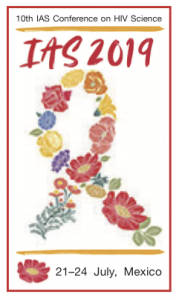High rates of viral suppression with low dose efavirenz in pregnant Zambian women
24 July 2019. Related: Conference reports, Pregnancy.
It was further recommended as the preferred regimen in pregnancy after the dolutegravir (DTG) at conception safety concerns from the Botswana Tsepamo study and the favorable tolerability, efficacy and CYP2B6 pharmacogenetics of EFV 400 mg in pregnant women living with HIV in a small study conducted in Uganda and UK. [2, 3]
The investigators evaluated maternal viral suppression (<1000 copies/mL) among women receiving EFV 400 mg based ART with documented maternal viral load at/near time of delivery. They also looked at infant HIV status (HIV DNA PCR).
Two hundred and eighty-seven (287) mother-infant pairs were evaluated. Of these 271 (94%) women started or were switched to EFV 400 mg during pregnancy and the remaining 16 (6%) were on EFV 600 mg.
Women were a mean age of 30 years (SD 6.56) with median ART duration of 19.43 months (IQR 5.26 to 55.69). Over half, 202 (58.72%) started ART in pregnancy and the remaining 142 (41.28%) were receiving it at conception.
Maternal viral suppression at delivery was 92.68% among those receiving EFV 400 mg and 88% among those receiving EFV 600 mg.
Two infants were HIV DNA PCR positive (0.7%). There were 2 with 3 (0.75%) non-viable outcomes and 8 (2.97%) foetal abnormalities.
EFV 400 mg was associated with high levels of maternal viral suppression during pregnancy and delivery. The investigators noted that this rate was higher than the previously reported suppression rates of 75% with EFV 600 mg in the same Zambian population. They suggested that this could be due to the improved tolerability of the lower EFV dose.
comment
These findings support the use of EFV 400 mg as an alternative option to DTG in pregnancy.
References
- Mulenga L et al. Low dose efavirenz (efavirenz 400mg) combined with tenofovir 300 mg and lamivudine 300 mg shows excellent viral suppression among HIV pregnant women receiving routine HIV care in Zambia. 10th IAS Conference on HIV Science. Mexico City, Mexico. 21–24 July 2019. Poster abstract LBPEB15.
http://programme.ias2019.org/Abstract/Abstract/5043 - WHO statement on DTG. 18 May 2018.
http://www.who.int/medicines/publications/drugalerts/Statement_on_DTG_18May_2018final.pdf (PDF) - Lamorde M et al. Pharmacokinetics, pharmacodynamics, and pharmacogenetics of efavirenz 400 mg once daily during pregnancy and post partum. Clin Infect Dis. 16 August 2018;67(5):785-790. doi: 10.1093/cid/ciy161.


 Polly Clayden, HIV i-Base
Polly Clayden, HIV i-Base